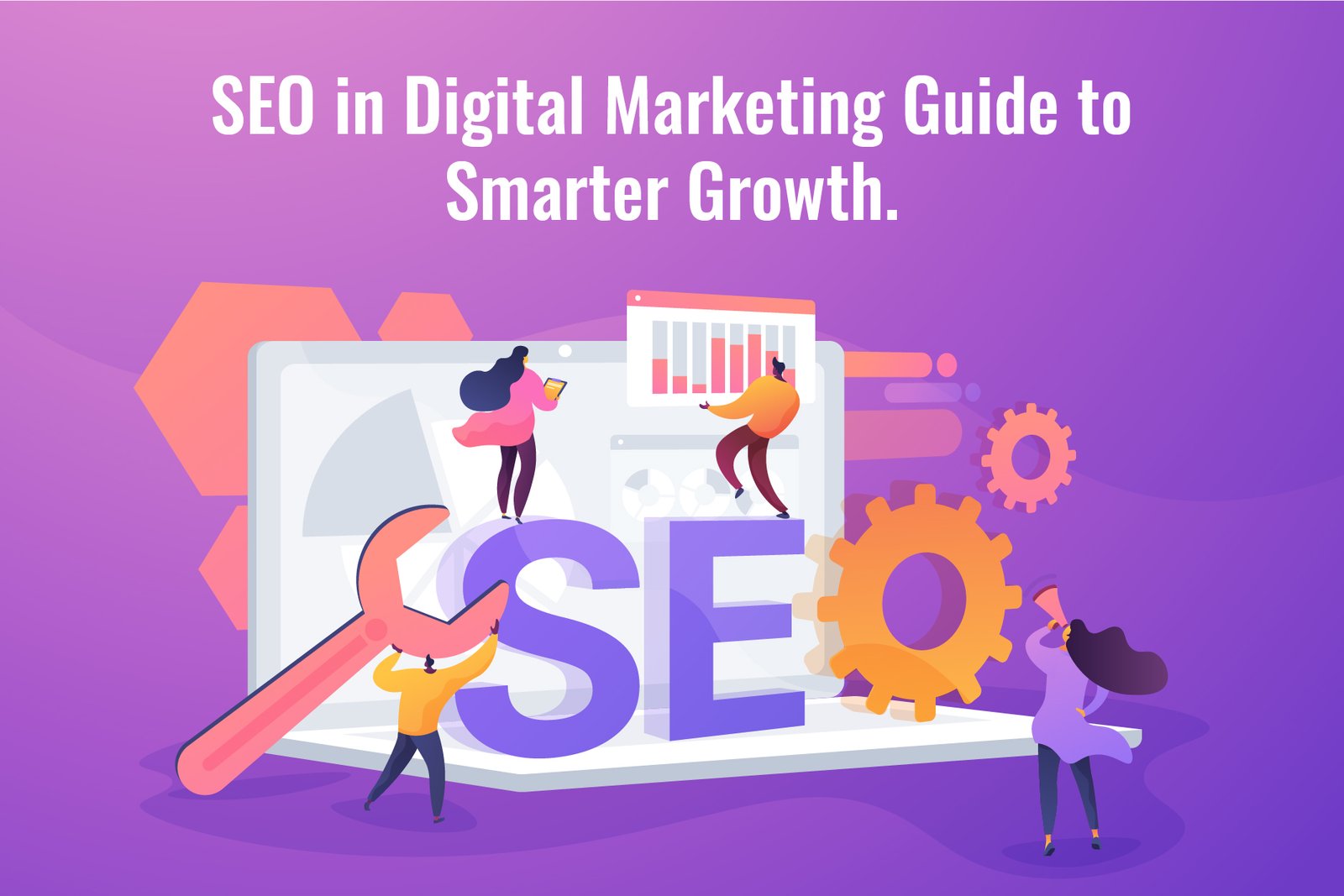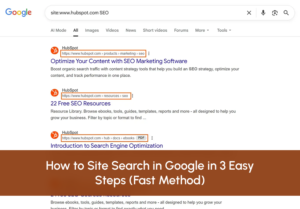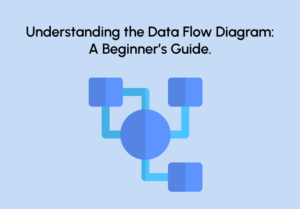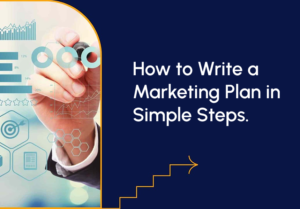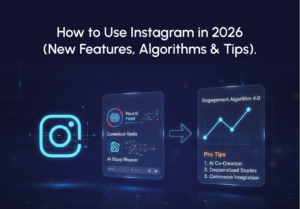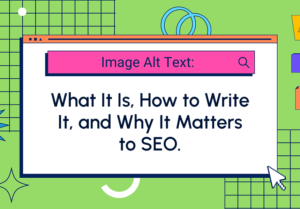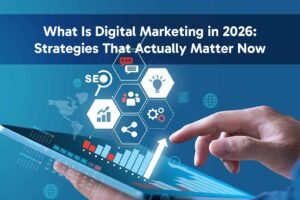Many people think that SEO is too hard to understand or that only “big brands” can afford it when they hear the word. However, SEO is not hard to understand. SEO makes sense and is consistent. SEO can affect how people discover you online – be it your business, side job or blog for fun – so let’s break down this topic into easily understood steps.
What is SEO in Digital Marketing?
What Does SEO in Digital Marketing? SEO stands for Search Engine Optimization. In simple terms, this means making it easier for people to locate your website on search engines like Google and others.
Google is like a big library. There is a “book” inside every page. It is important to have the right title, index, and keywords, so people will be able to quickly find your book when they look for something, which is what SEO is all about.
That means that when someone types in “best coffee shop near me” or “affordable fitness coach,” your site should come up. That’s what SEO is all about.
What is Digital Marketing in SEO?
This is what digital marketing is all about. It includes every way a company can market itself online:
- Internet sites like Facebook, Instagram, and TikTok
- Marketing by email
- Paid ads (like Meta Ads and Google Ads)
- Marketing with content (blogs, movies, podcasts)
- Of course, SEO
What do we mean when we ask what is digital marketing in SEO? it is a part of digital marketing, but it’s one of the most useful parts. Paid ads stop once your budget runs dry, while SEO keeps driving people to your website long after it has been implemented. Due to this continued traffic generating capability, SEO is often considered the cornerstone of digital marketing strategies.
Why SEO Still Matters in 2025
Some may view SEO as no longer valuable; many question why anyone would need it when Google and Facebook ads exist instead. But SEO still has value today if used effectively
SEO is still important because:
If you don’t pay, the ads will stop. SEO works for you even when you’re not there.
People have more faith in organic effects. A lot of people skip the ads and go straight to the search results.
There is competition everywhere. There are millions of companies online, but not all of them spend money on SEO. This helps you.
If you don’t care about SEO, it’s like locking your store door on the biggest market street. People are paying attention to other people while you’re not seen.
What is the Role of SEO in Digital Marketing?
SEO does one simple thing: it helps people find the information, goods, or services they want.
Imagine you running a bakery. Your posts on Instagram might only reach those following you; but when someone searches Google for “fresh croissants near me,” using SEO can ensure they find you immediately if they use search results like these to look.
That’s how SEO works:
- It helps people find you to show up in search results.
- It builds trust and people believe sites that are at the top of the list.
- It increases sales because people who look are usually ready to buy.
You can only reach people through ads or social media if you don’t have SEO.
How SEO Works: A Simple Breakdown
1. On-Page SEO:
What you do on your own website
- Giving your work clear names and headings
- Putting keywords in easily in content
- Making plans that are easy to use
- Making sure that web pages load quickly
2. Off Page SEO
To improve your image outside of your site, get backlinks from other sites that people trust.
- Writing as a guest
- Talk about on social media
- Online reports that are good
3. Technical SEO
Work that is done in the background to help Google “read” your site:
- Easy to use on mobile devices
- Safe site (HTTPS)
- Code that works
- The information on your page that tells Google what it’s about
It’s much more likely that your site will rank high if these three things work together.
Common Myths About SEO
Let’s bust some common myths that confuse beginners:
- Myth 1: SEO works instantly.
Nope. SEO takes time. It’s more like growing a tree than switching on a light. - Myth 2: SEO is only about keywords.
Wrong. Keywords matter, but so does content quality, site speed, and user experience. - Myth 3: You need a coding degree.
Not true. While technical SEO exists, most results come from simple things like useful content, clean design, and basic optimizations.
Let’s break some myths that beginners often believe:
- Myth 1: SEO works right away.
Not at all. It takes time to do SEO. Making light work is more like growing a tree.
- Second myth: SEO is all about keywords.
Not right. Things like site speed, user experience, and the quality of the information are also important.
- Third myth: you need a degree in coding
Not true. There is such a thing as “technical SEO,” but most of the time, easy things like useful content, clean design, and basic optimizations get the job done.
SEO in Action: A Real-Life Example
Say you have a small clothes store. “Best Summer Outfits for 2025” is the name of the blog post you write.
This is what you do:
- Put the words “summer outfits 2025” in the title and bullet points.
- Add real pictures of the products.
- Make your explanations easy to read.
- Take the blog link and post it on social media.
Over time, people who search for “summer outfits 2025” start to come across your blog. Some of them go to your site and buy things. SEO is working hard behind the scenes to get you sales.
Why Work with a Digital Marketing Agency for SEO?
You can do SEO on your own, but a lot of companies hire a Digital Marketing Agency to do it for them.
Why?
- Agencies have been around for a long time and know how to stick to Google’s rules as they change.
- They make your time more useful so you can run your business.
- Experienced employees understand what works, so they can get more done faster.
If your company’s growth goals are significant, engaging a reputable agency may help prevent costly missteps from being made.
How to Start SEO as a Beginner
Anyone can follow this easy step-by-step plan:
- Search Keywords: Locate keywords relevant to your target group’s interests.
- Write content: Use these keywords to organize blog posts, guides and product descriptions.
- Make your website mobile-friendly: Make your site quick and simple to access via phones.
- clear titles and headings: Make the titles and headers clear.
- Add internal links: Pages can be linked to each other by adding internal links.
- Collect backlinks: Get backlinks by writing guest posts or working with other people.
- Track performance: Use free tools like Google Analytics and Google Search Console to keep track of how things are going.
SEO Trends to Watch in 2025
SEO changes all the time. The future will be shaped by these things:
- Voice search is getting bigger. No longer do people type, they ask Alexa, Siri, or Google.
- Search driven by AI. People expect better answers from search systems that are becoming more like real people.
- Design for mobile first. You’re already behind if your site doesn’t work on phones.
- The user experience is more important. Google likes websites that are easy to use, look good, and are clean.
Mistakes Beginners Should Avoid
A lot of beginners find themselves in traps. Watch out for these mistakes:
- Putting too many buzzwords in the text.
- Copying what other people say word for word.
- Using blank templates that aren’t personalized.
- Writing for search engines instead of people.
- Not noticing mobile users.
Conclusion
What Is SEO in Digital Marketing? Ranking high on Google isn’t enough if your goal is to be noticed and trusted online; SEO works like your silent salesman 24/7 to build trust among consumers while costing less than advertisements and creating lasting success for small businesses.
No matter if you do it on your own or hire digital marketing agency services, what matters is staying real, being steady and continuously improving – remembering there is someone looking for answers behind every search query.
Frequently Asked Question (FAQ’s)
1. Can you describe SEO in simple terms?
SEO involves making it easy for people searching Google to locate your products/services more quickly.
2. Is SEO better than advertising?
Ads and SEO both work, with ads only ceasing to operate when their payments stop while SEO always produces lasting effects.
3. How long will SEO take to take effect?
The length of time for results varies but typically you should see results within six months if you stick with it.
4. Can SEO really benefit small businesses?
Yes! SEO allows smaller businesses to compete with larger names without spending too much on advertisements.
5. Can I do SEO myself?
It is possible! Just begin with writing helpful content, choosing appropriate keywords and making your site mobile-friendly as the foundation of a solid SEO campaign.

